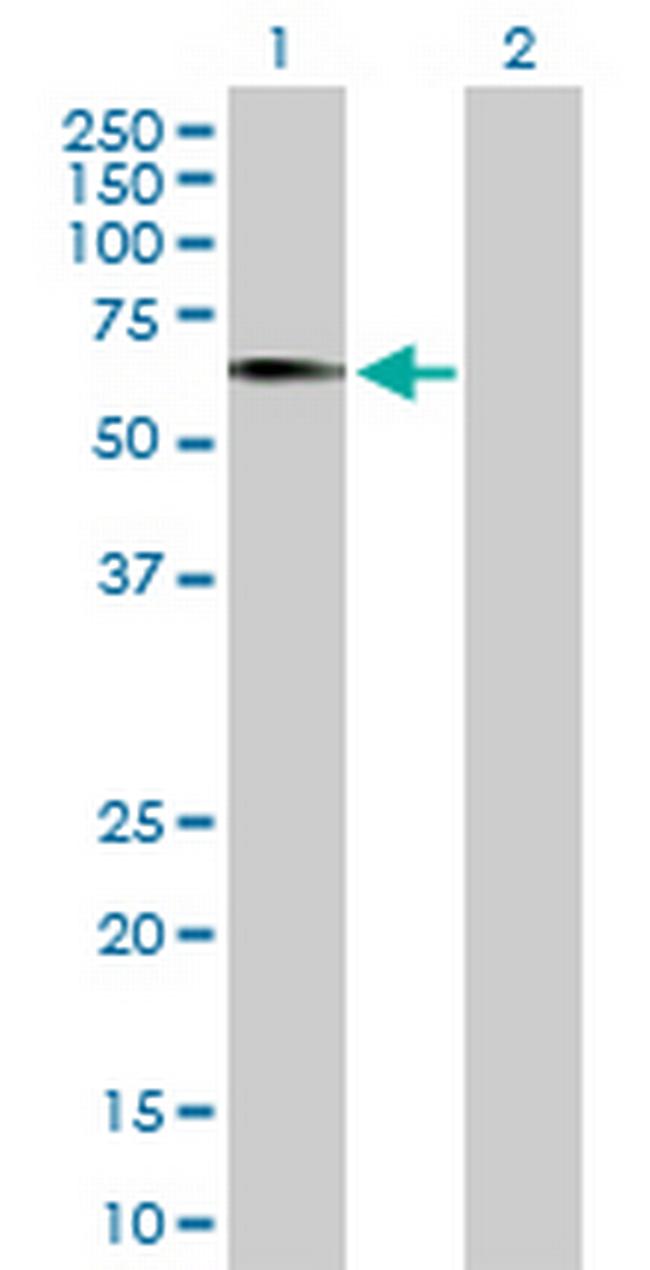Product Details
H00001959-B03P
Species Reactivity
Host/Isotype
Class
Type
Immunogen
Conjugate
Form
Concentration
Purification
Storage buffer
Contains
Storage conditions
Shipping conditions
Product Specific Information
Product may be used with Western Blot (Transfected lysate).
The Isotype of this product is composed of an IgG Mixture.
Immunogen sequence: MMTAKAVDKI PVTLSGFVHQ LSDNIYPVED LAATSVTIFP NAELGGPFDQ MNGVAGDGMI NIDMTGEKRS LDLPYPSSFA PVSAPRNQTF TYMGKFSIDP QYPGASCYPE GIINIVSAGI LQGVTSPAST TASSSVTSAS PNPLATGPLG VCTMSQTQPD LDHLYSPPPP PPPYSGCAGD LYQDPSAFLS AATTSTSSSL AYPPPPSYPS PKPATDPGLF PMIPDYPGFF PSQCQRDLHG TAGPDRKPFP CPLDTLRVPP PLTPLSTIRN FTLGGPSAGV TGPGASGGSE GPRLPGSSSA AAAAAAAAAY NPHHLPLRPI LRPRKYPNRP SKTPVHERPY PCPAEGCDRR FSRSDELTRH IRIHTGHKPF QCRICMRNFS RSDHLTTHIR THTGEKPFAC DYCGRKFARS DERKRHTKIH LRQKERKSSA PSASVPAPST ASCSGGVQPG GTLCSSNSSS LGGGPLAPCS SRTRTP
Target Information
The EGR2 gene provides instructions for making a protein called early growth response 2, which is part of the early growth response family of proteins. These proteins bind to specific areas of DNA and help control the activity of particular genes. On the basis of this action, the proteins are referred to as transcription factors. The early growth response 2 protein activates several genes that are involved in the formation and maintenance of myelin, the fatty substance that covers and protects nerve cells. Myelin promotes the efficient transmission of nerve impulses. If myelin is lost (demyelination) or its structure is disrupted, the transmission of nerve impulses is impaired. Mutations in the EGR2 gene can cause two forms of Charcot-Marie-Tooth disease, type 1D or type 4E (sometimes called congenital hypomyelinating neuropathy) or a severe form of type 1D (sometimes called Dejerine-Sottas syndrome) that begins during infancy or early childhood.
For Research Use Only. Not for use in diagnostic procedures. Not for resale without express authorization.
References (0)
Bioinformatics
Protein Aliases: AT591; DKFZp686J1957; E3 SUMO-protein ligase EGR2; E3 SUMO-protein transferase ERG2; Early growth response protein 2; EGR-2; FLJ1454; FLJ14547; Krox-20 homolog; KROX-20, Drosophila, homolog (early growth response-2); OTTHUMP00000062133; Zinc finger protein Krox-20
Gene Aliases: AT591; CMT1D; CMT4E; EGR2; KROX20
UniProt ID: (Human) P11161
Entrez Gene ID: (Human) 1959

Performance Guarantee
If an Invitrogen™ antibody doesn't perform as described on our website or datasheet,we'll replace the product at no cost to you, or provide you with a credit for a future purchase.*
Learn more
We're here to help
Get expert recommendations for common problems or connect directly with an on staff expert for technical assistance related to applications, equipment and general product use.
Contact tech support

